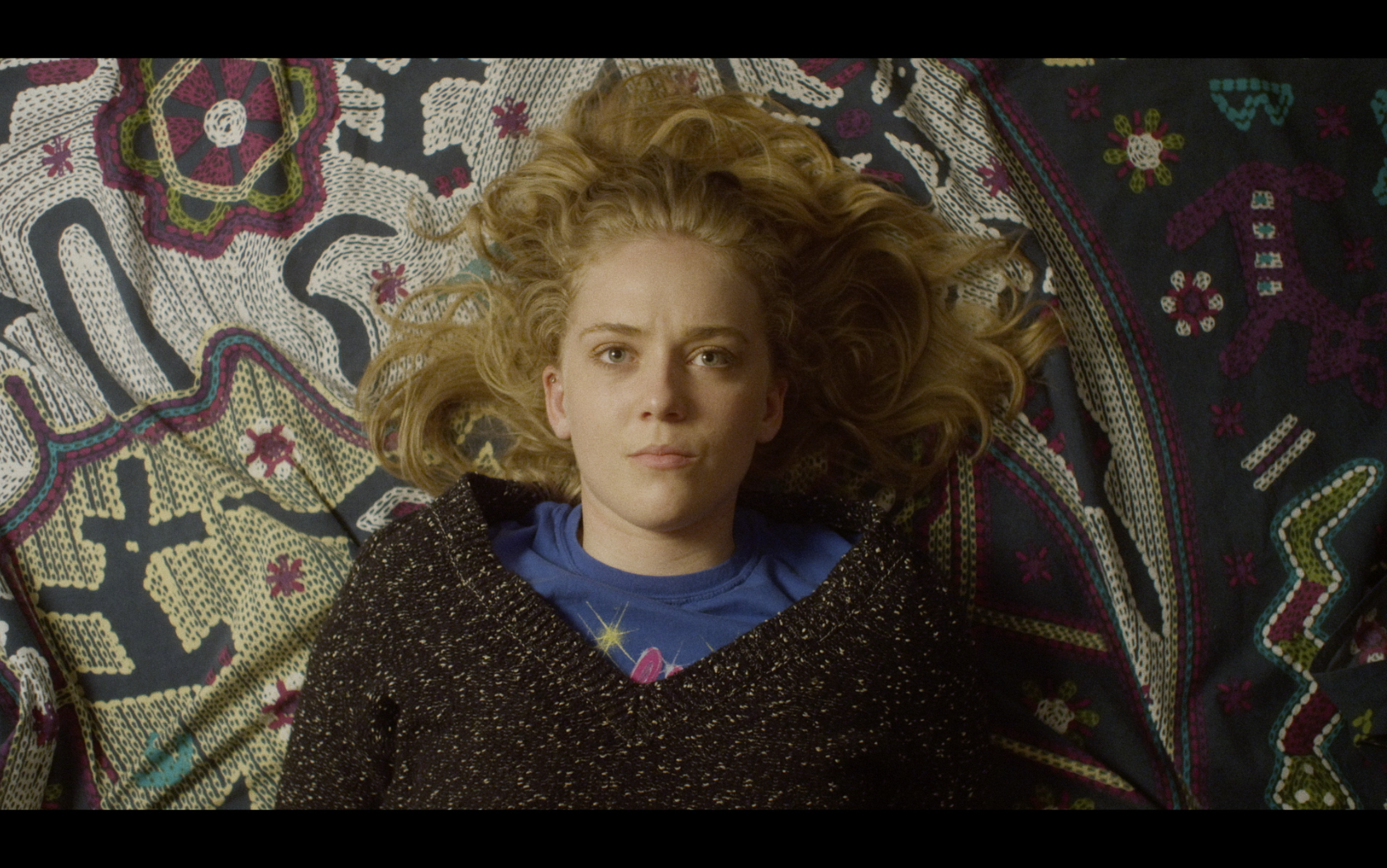Sibling relationships aren't often a focal point in cinema. Though there have been some examinations of the dynamics of elder and adolescent siblings —the connections that we forge with our siblings are hardly ever explored during our twenties. Early adulthood is typically the time when sibling relationships begin to shift and change. Real authentic friendships are forged, and childhood labels and expectations are often stripped away or peeled back. In their film, For Now —writer/directors Hannah Barlow and Kane Senes examine a sibling relationship over the course of a short road trip from Los Angeles to San Francisco.
For Now follows Hannah (Hannah Barlow), a twenty-something, Australian ex-pat and aspiring actress who is trying to form a career for herself while juggling her continually fractured relationships with her live-in beau, Kane (Kane Senes) and best friend Katherine (Katherine DuBois) —who is currently crashing on the couple’s couch. When Hannah’s younger brother Connor (Connor Barlow) flies into town to audition for the San Francisco Ballet Company —the foursome use the opportunity to embark on a road trip. Their journey soon pushes them all to examine some very harsh truths about themselves and their relationships with each other.
The majority of For Now is a chaotic jumble. Both Kane and Katherine are self-involved to the point of nausea. Additionally, the lack of boundaries and the disfunction between the group make the movie difficult to watch. Barlow and Senes chose not to use a traditional script when shooting the film. Instead —all of the scenes were 100% improvised. Unfortunately, this did not work entirely in their favor. Instead of a film focused on the uncertainty of the future and the frailties of youth, the audience is left adrift —landing in the middle of a party we neither understand nor wanted to be invited to in the first place. The characters are so all over the place that they become more frustrating than relatable.
Despite the frenzy of the film, Hannah and Connor are most endearing— leaving the audience wanting to know more about their relationship and how they’ve individually dealt with the tragic loss of their parents. However, because of the grating and conflicting personalities of the foursome as a whole —unpacking the siblings' relationship gets bogged down in a disorganized and harried tone of the movie. We're left instead with an exhausting plot full of bad decisions and tropes about entitled millennials.
Still, For Now has some merits. In the final twenty minutes of the movie —the siblings, who have been dancing around one another have a major showdown —unveiling years of pain, misunderstanding, and expectations. But, as soon as For Now reigns us in, it's over.
It would have been more poignant to examine grief, loss and how that can twist and bend the ties that siblings have with one another. The pain of losing her parents in a tragic car accident has made Hannah loving but overbearing. Meanwhile, Connor has becoming increasingly detached. As Hannah's dreams continue to slip through her fingers, she’s desperate for Connor to grasp on to his —even if that means sacrificing his happiness. The family home videos sprinkled throughout the narrative were also effective in creating a space for the brother/sister duo to exist in a different time and space.
Though their lives are chaotic at the moment, these videos prove that a sense of stability and constant love was once very much a part of Hannah and Connor existence. It also allows the viewer to connect with Hannah, who no matter how overbearing or Type A she may be seems like the only person with a sense of purpose or trajectory in the film.
The themes in For Now —loss, transition, and connection are all present. Regrettably, the film's jumpy narrative and wholly unlikeable characters don’t allow those topics to shine through. Instead, the audience is left with a puzzling display of selfishness and aloofness that does a disservice to the stellar acting in the film.
For Now is now available on iTunes, GooglePlay, Amazon and Vudu along with cable providers DirecTV and Comcast.
Aramide A. Tinubu is a film critic and entertainment writer. As a journalist, her work has been published in EBONY, JET, ESSENCE, Bustle, The Daily Mail, IndieWire and Blavity. She wrote her master’s thesis on Black Girlhood and Parental Loss in Contemporary Black American Cinema. She’s a cinephile, bookworm, blogger and NYU + Columbia University alum. You can find her reviews on Rotten Tomatoes or A Word With Aramide or tweet her @wordwitharamide

